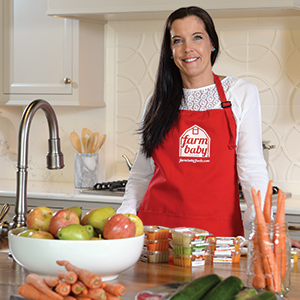
Ken-Matt Martin
Writer: Christine Riccelli
Photographer: Paige Peterson
It was, Ken-Matt Martin says, “the most soul-sucking moment of my life.” He was at a photo shoot, sweating in a “goofy costume” for an upcoming role as the donkey in a local production of “Shrek the Musical.”
The shoot was the morning after he had directed a performance of August Wilson’s “Fences” at the Des Moines Social Club. Set in the 1950s, the Pulitzer Prize-winning play focuses on the story of a 53-year-old African-American man who struggles to provide for his family.
“I went from the exhilaration of directing a beautiful play about the black experience to having to prepare for a role that was steeped in black stereotypes by way of being the ‘sassy’ big-voiced secondary lead,” Martin recalls of that day in 2014. “I felt like I was in blackface.”
The sharp and unsettling contrast made Martin realize he wanted to focus on directing and producing instead of performing—“actors are dispensable, with little power”—as well as on being involved in theater projects he found meaningful.
His path since then has reflected that resolve: Last summer, Martin produced Charles Fuller’s “A Solider’s Play;” like “Fences,” it drew raves from critics and audiences. Those successes spurred the development of Pyramid Theatre Company, which was established last August with Martin in the role of executive director. The company will launch its inaugural season with “A Raisin in the Sun” July 8-17, followed by “Hooded, or Being Black for Dummies” July 21-31.
“Ken-Matt is the driving force behind Pyramid,” says Matthew McIver, a board member who directed “A Soldier’s Play” and, as the then artistic director of the Social Club, helped launch “Fences.” “He has a big vision and uncompromising artistic standards but also a willingness to do the hard work and to make sure each project is funded appropriately.” Plus, McIver says, Martin “has attracted a great team of talented folks in their own right. That’s key to launching this kind of project.”
Pyramid’s goal is to stage plays in Des Moines that explore authentic African-American life, Martin says. “These stories show that people are people, yet they’re crafted in a way that allows a white person to essentially sit in the living room with the characters and get a glimpse of what black life is really like—not some trope or stereotype,” he says. “Pyramid allows us the space to tell our stories and our parents’ and grandparents’ stories.”
“Part of Pyramid’s mission is to bring people into the theater who don’t usually go,” McIver adds. “They don’t see theater as a place for them. But Pyramid gives them the opportunity to see stories that speak to them.”
McIver and Martin both emphasize that Pyramid is not intended to be a theater for African-American audiences only but rather one that’s inclusive to people of all races, ethnicities, backgrounds and ages. “People are put off if they think it’s only a black theater for black people,” Martin says. “We’re telling stories for everyone, just through a black lens.”
“So much of African-American history is American history and so much American history is African-American history that if we don’t have these stories, we don’t know ourselves as Americans,” McIver says.
He points to Texas’ recent textbook revision that downplays slavery as a cause of the Civil War—and that excludes mention of Jim Crow and the Ku Klux Klan—as an example of what can happen when the stories of the African-American experience aren’t being told. “That’s the kind of thinking that can happen when we don’t have African-Americans at the table,” he says. “Pyramid has an important role to play in bringing these voices forward.”
Martin also stresses that Pyramid “isn’t looking to compete with other companies. We tell stories differently. Des Moines is expansive, and I think the city can handle another company.”
Though Martin didn’t foresee it then, the vision for Pyramid took root when he was 11 and saw August Wilson’s “The Piano Lesson,” performed by the Arkansas Repertory Theater in Little Rock, Ark. The show mesmerized him. “It was the first time I saw people onstage who looked like me and who talked like me,” recalls Martin, who grew up in Little Rock.
His experience seeing “The Piano Lesson”—along with the influence of his mother, who was involved in the local urban theater movement—stimulated his interest in pursuing performing arts. By age 12, he had an agent and a development contract with the Nickelodeon network. “From age 12 to 15, you name it, if there was a role for a chunky black kid, I auditioned,” he says.
He won roles in commercials, TV shows and two independent films, but he found the auditioning process and the rejection brutal: “Dealing with that level of rejection was really rough for me—so rough that I’m just now able to talk about it.”
Still, his passion for theater remained, and he attended a performing arts high school in Little Rock. “I loved it,” he says. “I got to truly train in dance, acting and music.”
As he researched college musical theater programs, he came across Drake University. Although Drake was his father’s alma mater, “I’d never considered going there. Growing up in the South, Iowa was not on my radar at all,” recalls Martin, who describes himself as a “true Southern boy through and through.”
Still, his father persuaded him to visit. “I like to say I got hoodwinked into going to Drake,” Martin says with a chuckle, explaining he ended up visiting “on the same weekend that there was an African-American reunion there. So I could see myself there.”
But when he landed at Drake in 2008, the reality didn’t match what he had envisioned. “I’d never in my life dealt with such culture shock. It was jarring,” Martin says. “I was a true minority; I’d go days without seeing one person who looked like me. It was the first time I had to deal with racism—both overtly and in terms of micro aggressions. It was a really tough transition.”
His distress intensified in his sophomore year when a close hometown friend, Victorya Van-Pelt—whom he had persuaded to join him at Drake that year—suddenly died. As he dealt with his grief, he took a two-year break from performing, returning to the stage in 2011 for a Des Moines Community Playhouse production of “Hairspray.” The following year, he graduated with degrees in theater and public relations.
Though his acting credits continued to pile up—he’s also acted in shows and musicals for StageWest Theater Company, the Des Moines Social Club and other companies—he was drawn to directing and producing, with encouragement from McIver as well as from Scott Siepker, a Des Moines filmmaker, actor and producer best known for his “Iowa Nice Guy” character.
That led to “Fences,” which was a sellout in 2014 at the Des Moines Social Club. Martin “did a tremendous job building buzz and excitement in the community about the production of an August Wilson play,” says McIver. “It’s a big script to hand a first-time director, but he put together an amazing cast.”
The success of “Fences” spurred McIver and Martin to collaborate on “A Solider’s Play.” Though the show was a success, Martin says it exhausted him, partly because he received a death threat. Police were alerted, but Martin didn’t share the threat with the cast. “I was terrified, but I wouldn’t cancel the show,” he says.
After that production, “people kept saying to me, ‘What are you doing next?’ Nana (Coleman, Pyramid’s managing director) and the others encouraged me to help form the company,” Martin says. “I said, ‘What happens if I’m not in Des Moines full time?’ They said, ‘You don’t have to be here all the time.’
“They ultimately wore me down,” he adds with a laugh.
Indeed, the leadership of and collaboration among the other company members have been key to the launch of Pyramid over the past year as Martin has spent most of his time in Chicago, serving as an apprentice to the general manager at the Goodman Theatre. This fall, he’ll start an MFA program in directing at Brown University in Rhode Island.
Martin “is building his skill set so that he can have as much impact in the community and make the connections that will draw national talent here,” McIver says, citing Pyramid’s artistic producer, Freddie Fulton, and artistic director, Jiréh Breon Holder. “This is an extraordinary opportunity for Des Moines.”
Indeed, despite the rocky start to his time in Des Moines, Martin now is eager to return after completing his MFA. “Show business is such that it’s a gypsy life; you’re always hunting for the next gig,” Martin says. “But I want Des Moines to be my home space. Pyramid and Des Moines are now a part of my life; it’s not an option for me not to come back. I love it here.”
The Best For Baby

Julie Burroughs
Writer: Brianne Sanchez
Photographer: Duane Tinkey
Julie Burroughs delivers farm-to-table dining to the high chair set. Her Des Moines-based baby food business, Farm Baby, provides a premium product for parents who crave fresh, all-natural options for their children but don’t have the time or inclination to do the cooking themselves.
“I call (Farm Baby) the healthy frozen pizza of baby food,” says Burroughs, 41, whose business began after she struggled to find a service that would provide simply prepared purees for her twins.
Fresh baby food should be consumed or frozen within 72 hours, and she knew she wasn’t alone in the struggle to keep ahead of her kids’ appetites. Already the mother to a teen and a toddler, Burroughs was looking to outsource the steaming and mashing and stumbled upon a gap in the market. It wasn’t long before she was renting space in a commercial kitchen and making deliveries.
Making baby food from scratch “is just messy and time-consuming,” Burroughs says. “It’s not hard; people just don’t know how to do it. We’ve gotten into the world of convenience.”
After learning about the elaborate processing required to make grocery store baby food shelf-stable and the low-grade ingredients that go into even organically labeled pouches, Burroughs got angry. She balked at the idea that scaling up would mean sacrificing quality or transparency.
“I didn’t want there to be any question about what you were feeding your baby,” says Burroughs, who channeled her concern into cooking for the masses by launching Farm Baby in June 2014. She delivers the food directly to local moms and also sells at the Downtown Farmers’ Market. This past spring, Hy-Vee began stocking fresh and frozen Farm Baby foods in nine stores. The food also can be ordered through the Farm Baby website (farmbaby.com).
Curled up on the couch of her South of Grand home, Burroughs shares her story of accidental entrepreneurialism with the confidence of a businesswoman who has set her sights on growing into a national brand—and the salty sense of humor you appreciate from a girlfriend who totally embraces the crazy juggling act that parenting inspires.
“I get how hard it is,” Burroughs says. “So, yeah, you need baby food tomorrow? Sure, I’ll bring it to you.”
New moms like Sarah Reichardt, who got hooked on Farm Baby after redeeming a gift card she received at her baby shower, look to Burroughs for advice as their babies’ eating habits evolve. “Of course, with the first baby you’re like, ‘Why the heck would I need this?’ But I was so, so, so happy that I had that,” when it was time to start solids, Reichardt says. “Julie would deliver at my home, at my work, and anytime I had an emergency low stash. She’d also throw in extra new things for my son, Rowan, to try.”
Although her path from a career in social services and then sales doesn’t add up to a likely background for a burgeoning baby food company CEO,
Burroughs’ rural roots run deep. She lets slip a slight smirk when asked for her recipes, which are simply apples or peas or some mix of produce and water—a no-brainer for someone who grew up snacking from the garden on her parents’ Danbury, Iowa, farm.
“I think there’s so much confusion in the food industry for moms,” Burroughs says. “I don’t want them to question how I make it.”
She knows not everyone can afford Farm Baby, which costs $3.50 to $4 per serving. So her business has evolved to include workshops that teach moms, at places like the Young Women’s Resource Center, how to prepare their own food.
“Moms are the best customers ever,” Burroughs says. “When they find a product they believe in, they push it to the moon.”
Writer Brianne Sanchez is the community relations manager at Des Moines University. She moved to Des Moines in 2007 and likes to call herself an “Iowan by Choice.” She’s raising two Iowa natives.
Pyramid Theatre Company
In addition to Ken-Matt Martin, key leaders of Pyramid include Tiffany Johnson, Nana Coleman, Claudine Cheatem, Jiréh Breon Holder, Freddie Fulton, Alexis Davis and Aaron Smith. “This Pyramid,” the company’s website states, “is being built on four principles: artistic excellence, community engagement, artist education and black community collaboration.”
This season’s productions:
“A Raisin in the Sun,” by Lorraine Hansberry, July 8-17, Harman Fine Arts Center at Drake University; directed by Tiffany Johnson.
“Hooded, or Being Black for Dummies,” by Terrance A. Chisholm, July 21-31, Kum & Go Theater at the Des Moines Social Club; directed by Jiréh Breon Holder. For details and tickets, go to pyramidtheatre.com
.









